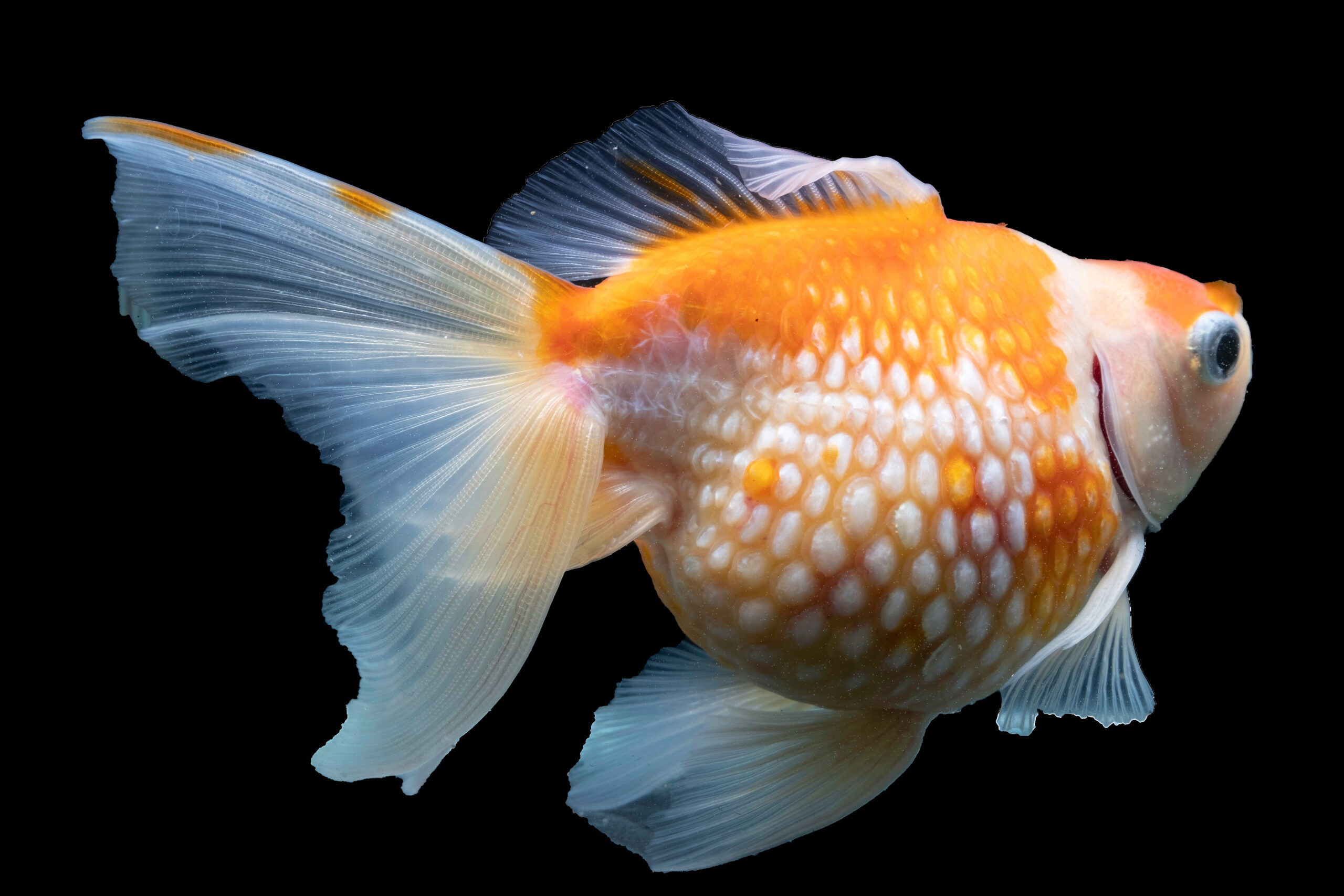Bloat in fish is a perilous condition caused by several factors, including gas accumulation and fluid retention, that can lead to suffocation. The effects of bloat can be fatal for fish, making it crucial to learn about the causes and ways to prevent it from occurring in your aquarium.
What Is Bloat?
When a fish is bloated, it exhibits visible swelling around its abdominal region. Though it can happen to saltwater and freshwater fish, it’s commonly seen in goldfish and tropical cichlids.
Bloat is brought on by several factors, which we’ll discuss in detail later. When a fish bloats, its scales become more prominent, and it may even appear as though its scales resemble a pinecone or hedgehog-like appearance. Bloated fish are typically inactive and may stay at the bottom of the tank, which can cause them to drown if they can’t reach the surface to breathe.
Although bloat may seem mild initially, it can have severe consequences for your fish. Without proper treatment, it can lead to death.
Symptoms Of Bloat In Fish
The following symptoms should be noted when determining if a fish contracted Bloat:
Swollen Belly
The most frequent symptom of bloat in fish is a bloated stomach, although it can be challenging to diagnose. A visibly swollen belly in your fish could indicate severe bloat.
Pinecone Appearance
In some cases, when a fish is bloated, its scales may appear like pinecones or spikes. This is due to gas accumulation within the fish’s body, causing its stomach to expand and push outwards on its scales.
Lethargy
Lack of energy or lethargy is another indication of bloat in fish. Bloated fish are often more content to rest at the bottom of the tank than swim around as they typically would. They might even slowly sink to the tank bottom if left unattended.
Hole In The Head
In some fish, bloat can cause exophthalmos or eye swelling. This typically happens when fluid retention causes excessive pressure inside the fish’s body.
Causes Of Bloating In Fish
A multitude of factors can contribute to bloat in fish, and below we shall delve into several of them. Nonetheless, it should be noted that the most prevalent cause stems from the accumulation of gas in the fish’s body, which is often due to decay in the tank’s water.
Gas Blockage
When a fish ingests excessive air, either from an overly active filter or unsatisfactory water quality, the air may become obstructed from entering its digestive system and instead find its way to its stomach.
Food Allergies
Occasionally, some fish may develop allergies to particular types of food, which can result in a swollen abdomen. Nevertheless, this is a relatively uncommon occurrence and can be effortlessly addressed by modifying your fish’s diet.
Nitrogenous Waste Accumulation
If nitrogenous wastes amass in the aquarium and decompose, they can release hazardous gases. This is another widespread cause of bloat and can only be prevented by performing regular water changes and maintaining the tank correctly.
Treating Bloat In Fish
Below is a list of methods that may be employed to treat bloat in fish. However, it is imperative to remember that this list does not encompass all scenarios and is merely a general guideline for the most frequent cases.
Change The Water In The Tank
One of the most effective approaches to reduce gas accumulation in the tank is to perform a water change. To achieve this, remove a significant portion of the tank’s water and replace it with fresh, dechlorinated water.
When conducting a water change, it is also recommended to vacuum the gravel to eliminate waste that may decompose in the fish tank and release toxic gases such as ammonia.
Feed More Often
When a fish’s stomach is filled with too much air, it may exhibit a heightened appetite. Therefore, try feeding your bloated fish more frequently to release the excess pressure on its body and reduce bloating.
Increase The Temperature Of The Tank
Increasing the temperature of your tank may sometimes ameliorate bloating issues by accelerating your fish’s metabolism. This, in turn, releases more gases from its body and decreases the amount of internal pressure on its stomach, ultimately diminishing bloating.
Increase The Quality Of Your Fish’s Food
If you suspect an allergy is responsible for your fish’s bloating, try changing its food brand or type to see if it produces an adverse reaction. In most circumstances, this will resolve the issue without resorting to medication. Nonetheless, it is essential to note that some fish breeders recommend a limited ingredient diet for their more sensitive or allergy-prone fish.
Medicate Your Fish
Lastly, you can treat bloat with medication from your local pet store. However, we recommend consulting with an experienced aquarist before administering any medication to your fish.
Preventing Bloat In Fish
To prevent your aquatic pets from developing bloat, it’s crucial to perform regular water changes and filter maintenance to keep the tank clean and maintain optimal ammonia and nitrite levels.
Moreover, consider feeding your fish smaller but more frequent meals to avoid overeating and subsequent gas accumulation.
When dealing with bloat in fish, using a de-chlorinator and dechloraminator (or detoxifier) is highly recommended. Dechlorinators help removes chlorine and chloramines from tap water, whereas dechloraminators (or detoxifiers) can neutralize ammonia, nitrites, and/or nitrates in an emergency.
Is Bloat In Fish Contagious?
While fish bloat is generally not contagious, it can be caused by bacterial infections that may or may not be contagious depending on the type of bacteria involved.
To be safe, it’s best to quarantine any new fish before introducing them to your aquatic population. This practice can help prevent exposing other fish to diseases the new addition may carry.


